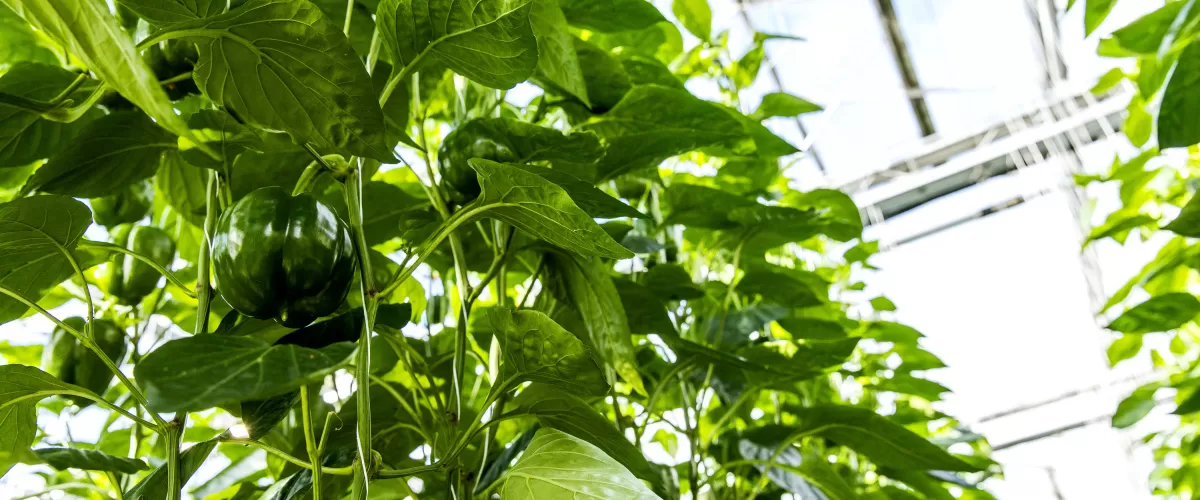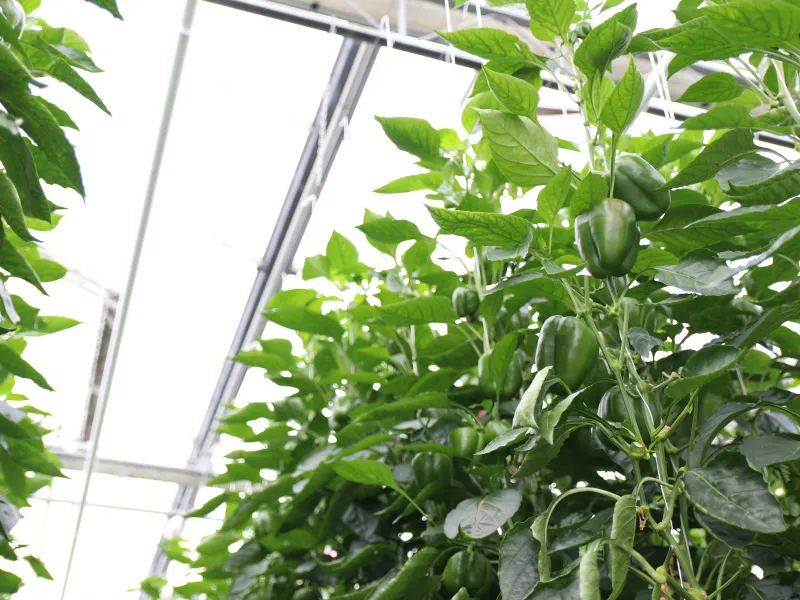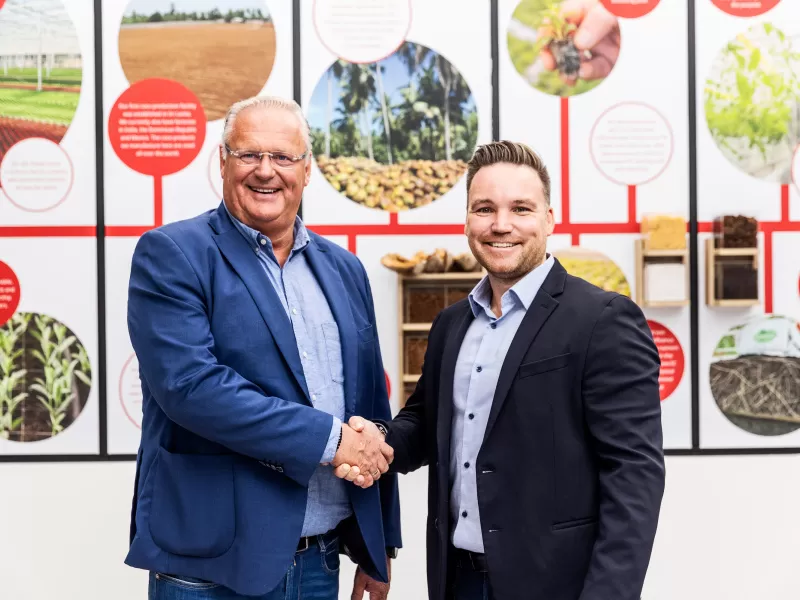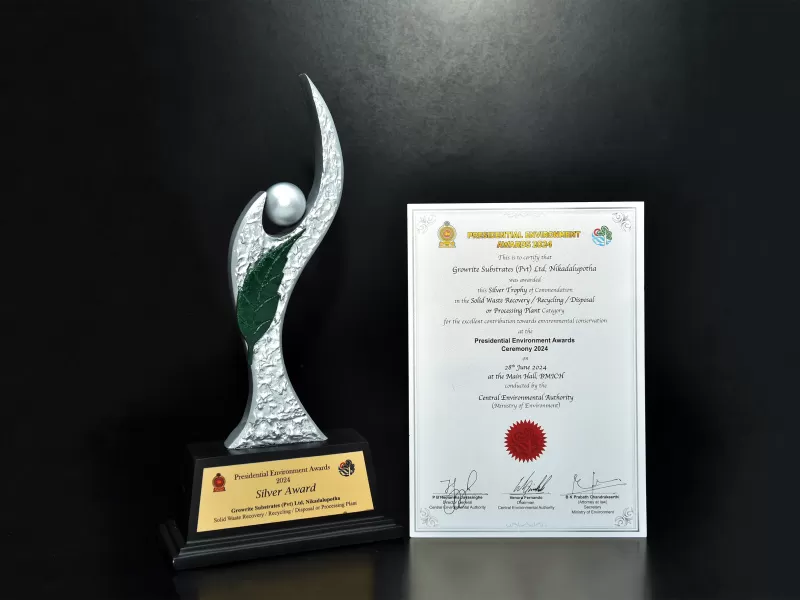Trial in innovation centre ‘de Kas’
The latest trial involves the comparison of Alzamora RZ variety sweet pepper plants, grown on Forteco Profit coco substrate and on stone wool substrate. The trial monitors the plants, harvests and irrigation. The seeds were sown at the start of November 2023 and planted in early January 2024. The average number of stems per square metre is 6.72. To replicate the practical conditions as closely as possible, the plants are given conventional mineral nutrients on both the coco and stone wool substrate. We now have extensive knowledge and experience of coco substrate cultivation. And during regular visits from an experienced grower, we receive advice on stone wool based pepper cultivation.
Observations
Currently, plants on both substrates are performing well. We have observed a clear difference in root quality, as the roots of the plants on the Forteco Profit substrate slabs have a visibly healthier appearance. This difference in quality was particularly noticeable during the first harvest peak in April. While the roots in the stone wool substrate showed clear signs of deterioration, the roots in the coco substrate remained healthy. Although the plants continued to produce new roots during cultivation, this deterioration is clear evidence of reduced resistance and that the variety is more susceptible to pests and diseases.
During the first period, the harvest on stone wool and coco substrate were more or less the same in terms of quantity, with the plants on coco substrate performing slightly better. The fruit weight on the Forteco Profit slabs was higher, with an average of approximately 200 grams. During recent weeks, the harvest from the plants grown on coco substrate has been significantly higher than those grown on stone wool. Although the plants on stone wool initially grew taller, their growth has since stagnated, meaning the plants on both substrates are now the same height.
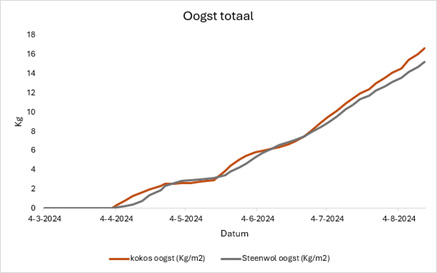
Figure: harvest of the plants on stone wool and coco substrate
In practice, problems occur in inert substrates such as stone wool that can lead to crop failure. However, these problems have yet to be encountered with growers using coco substrate. Up to now, no plant mortality has occurred in the trial, either on coco or stone wool substrate. We have observed light yellowing of the plants on stone wool, which could indicate that the plants are having more difficulty absorbing nutrients.
Soil life
Soil life is also key to this research project. An active soil life contributes to resilient, stress tolerant plants that are more resistant to different types of diseases and pests. Eurofins Agro monitors the quality of soil life during the trial. They have developed the Soil Life Monitor for this purpose, which is used to accurately measure the exact number of microorganisms in the soil. They were able to establish that, during cultivation, a richer and more varied microbial life develops in coco substrate than in an inert substrate like stone wool. This is also evident in the results of the pepper trial: not only is there a richer soil life in coco, it is more diverse than stone wool. Over the past two years, analysis has been performed using the Next Generation Sequencing (NGS) method. This method of analysis allows us to classify the different species of microorganisms found in the substrate and to demonstrate the variety of fungi and bacteria present.
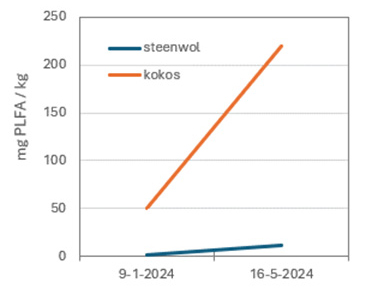
Figure: difference in microbial biomass between stone wool and coco substrate
Innovation centre ‘de Kas’
Long-term trials are performed at Van der Knaap’s innovation centre ‘de Kas’. The centre consists of twelve greenhouses, an outdoor field for trials and a state-of-the-art laboratory. We test our own products, develop new products and perform regular trials together with, and for, our clients and other external parties. This research enables us to further develop knowledge of a wide range of crop and plant types and cultivation techniques, so that we can support our clients in the transition to sustainable horticultural practices.
More information
Would you like to receive more information on soil life or cultivation using Forteco coconut substrate slabs? Please contact us on +31 (0)174 525050 or at sales@vanderknaap.info.
